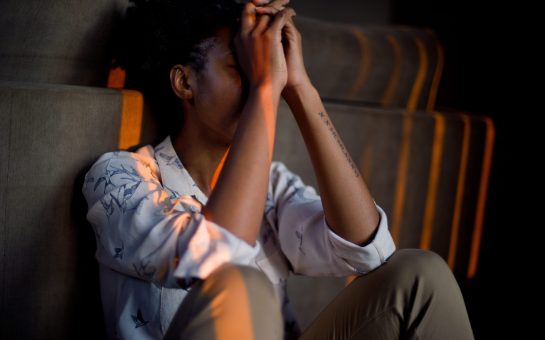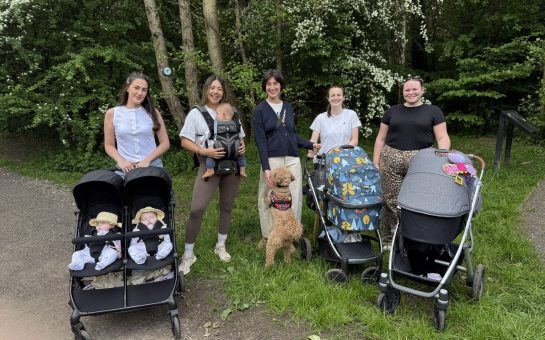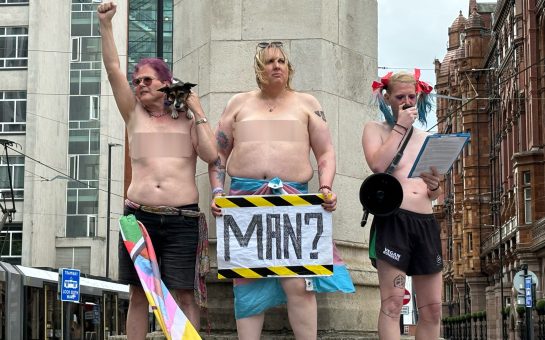A national charity set up a COVID Emergency fund in March this year to support 18-28-year-olds who are asylum seekers and refugees.
Hope for the Young found migrants, who are unable to access immediate financial aid due to their status, had been hit especially hard by the pandemic.
Organisations such as MRSN, Refugee Action, Refugee Council and many others have all pulled together to support the vulnerable.
Hope for the Young has now launched a second round of the emergency fund to alleviate hardships and remove obstacles for young people.
The charity was set up in 2008 by a retired psychiatrist who ran a mental health service for young people seeking asylum or who had refugee status.
Soon after, it became apparent many of the challenges faced were financial barriers to access education, so an education fund was set up.
This offered small grants for tuition fees, living grants, and travel expenses which would help them access education anywhere in the UK.
The charity also runs a Mentoring Programme for young people to help them achieve their goals, improve confidence, and help with isolation.
Matt Blacker, head of programmes and development, said: “COVID has had a massive impact on young people in accessing services.
“A lot of them are living in poor accommodation without access to Wi-Fi, laptops, working phones, or even basic necessities such as food and medication.
“The COVID-19 emergency fund was a way of putting our experience to best use.”
This fund was created to support the young people facing the most extreme hardships due to the pandemic.
It was rolled out to young people across the UK and provided small grants of up to £250 for those who were facing significant challenges.
Mr Blacker added: “We prioritised those who were destitute, homeless, and who had no access to services.
“We really hoped that a small bit of support from us could have quite a significant difference short term while people were forced to lockdown.”
Although the need for the fund exceeded the amount of funds available, approximately 130 young people have been supported since it first launched.
Hope for the Young aims to assist those young people who might be falling behind and struggling with their education.
Mr Blacker said: “The most difficult thing was turning people down who we knew were in real need of additional support.
“It doesn’t help that a lot of the education is now online, and they are still facing technological challenges like poor Wi-Fi or lack of resources.
“What we pride ourselves on as an organisation is providing a rounded package of holistic support which is tailored to the needs of each young person.
“We specialise in providing financial support and additional further support such as mentoring to double the impact it can have on somebody’s life.”
Other charities are also launching campaigns, such as the #NeverLoseHope campaign.
Gulwali Passarlay, a former refugee, who fled war in Afghanistan and came to this country at the age of 12, is determined to help people who have had a tough journey.
Adam Wallis, co-founder of Be The Change Project, is also behind this campaign.
Together, they felt it was extremely necessary to provide mental and emotional support to young refugees who find themselves in challenging situations.
Mr Wallis revealed: “On a bigger scale, our goal is to offer every single young refugee with a support partner or psychological counselling from psychiatrists.
“Our first and initial milestone is to raise £10,000. We are looking to rally more awareness, more crowdfunding, and volunteers.
“Volunteers who are willing to do anything from simply sharing links online, or even arranging day outs to the museum, for example, break their routines, go on a trip to the countryside so that they can feel normal again.”
They have found there has also been a detrimental impact on mental health.
With social distancing in place, the second wave has been equally difficult as young people were not allowed to integrate into their communities, and Hope for the Young is tackling this.
Mr Blacker continued: “Part of our aims are to support young people in accessing new services which will help them make new friends and meet new people.
“But with services closing and not being able to go to social events- it is stopping that from happening which is increasing isolation.
“The reason we want to increase access to services is because we know that it will have a positive impact on mental health, on physical health, and on educational attainment.
“Without having access to those things, all those factors then suffer as a result.”
Grants and advocacy programmes, mentoring projects, and the COVID emergency funds are all ways which challenge the practical barriers to their education and well-being.
The team at Hope for the Young help individuals overcome adversity so that they can easily access learning opportunities, rebuild their lives, and focus on their future.
If you’d like to help make a real difference through donations and fundraising, visit here.
If you would like to support the #NeverLoseHope campaign, you can find more information on their website here.



